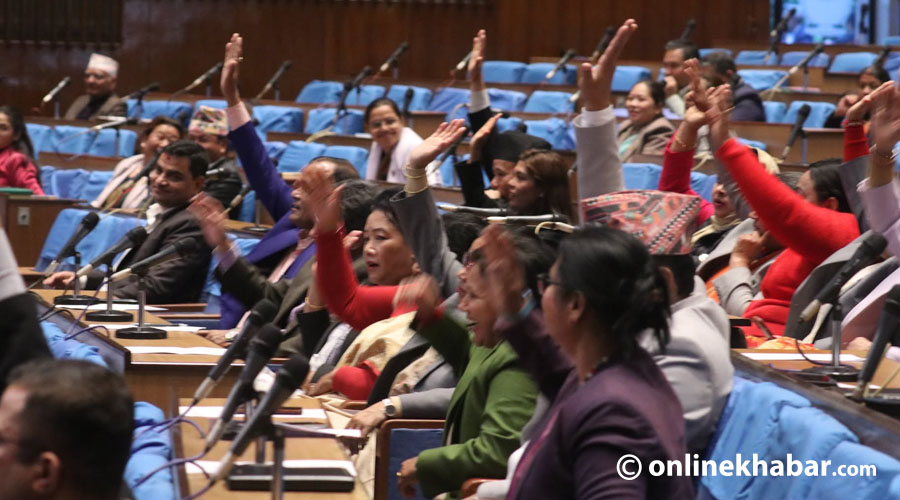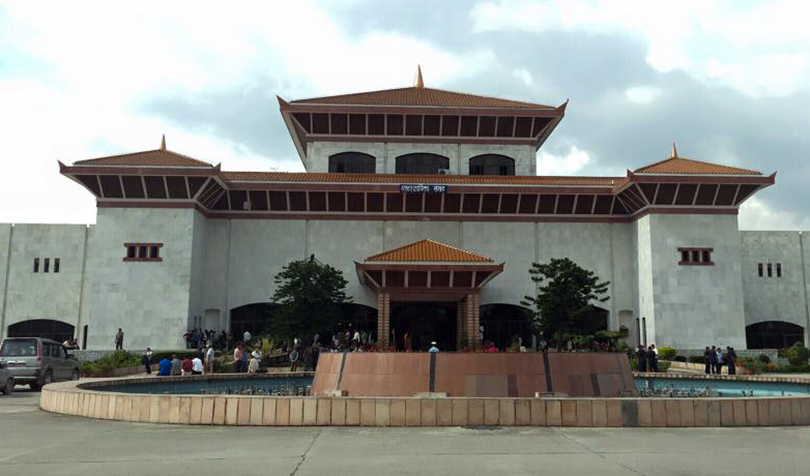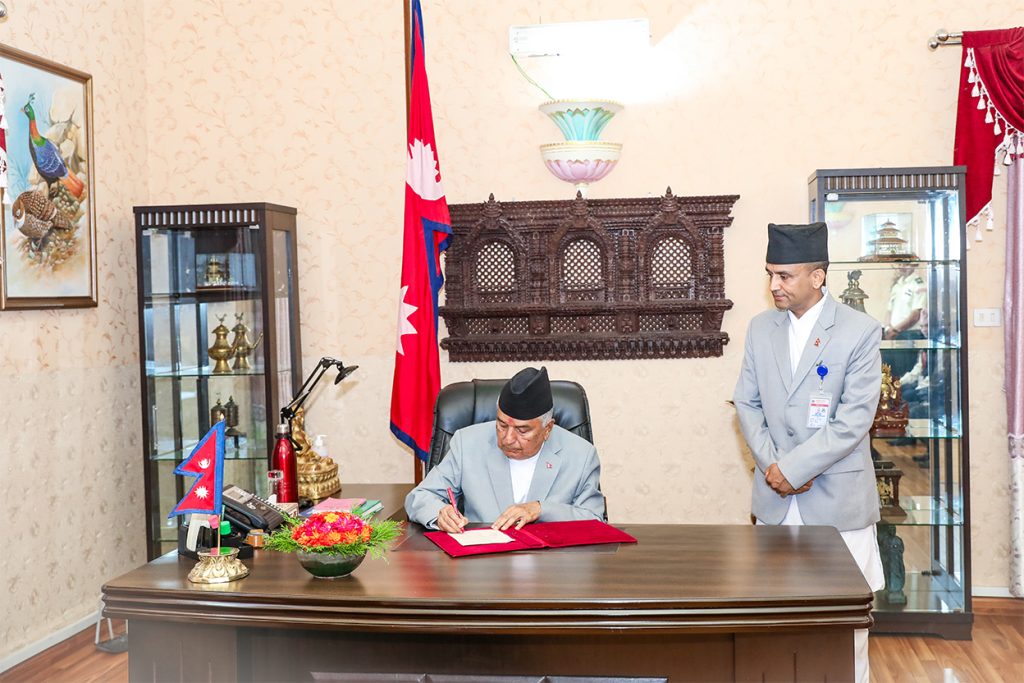
Kathmandu, February 16
The process of advancing various ordinances in Parliament is set to be further delayed. The House of Representatives is scheduled to meet continuously on Sunday, Monday, and Tuesday, but none of these sessions will include discussions on the ordinances.
According to the parliamentary calendar, the next session of the House of Representatives is set for February 23, during which the ruling parties plan to push forward the ordinances.
On Sunday morning, the ruling party’s chief whips held a meeting at Singha Durbar, where they discussed the progress of the ordinances. Chief Whip of CPN-UML, Mahesh Bartaula, stated, “Discussions are ongoing regarding the tabled ordinances. We are considering which session would be suitable for including them in the agenda.” However, a final decision on when to present them for approval has not been made.
Bartaula further clarified that the government ministers need to be prepared to respond to discussions on the ordinances. He added that 51 disapproval motions have been registered in the House of Representatives, all of which need to be addressed before proceeding.
“As of now, there is no possibility of advancing the ordinances in the next three sessions. We are discussing the most suitable time for this and will also consult with the government,” Bartaula said.
The ruling party’s chief whips have not yet finalized whether the ordinances will be moved forward on Februray 23 or at a later date.
On Poush 14, President Ram Chandra Paudel, on the recommendation of the Cabinet, issued an ordinance to amend certain Nepal Acts related to cooperatives. Additionally, on Poush 29, four more ordinances were issued, including those related to promoting good governance, amending financial responsibility and economic procedures, privatization, and improving the investment climate. Another ordinance amending land-related laws was issued on Magh 2.
All six ordinances were presented in both houses of Parliament on Magh 18, the first day of the session. The government must now seek parliamentary approval before introducing replacement bills.
As per constitutional provisions, ordinances must be presented on the first day of a parliamentary session and passed by both houses within 60 days. Failure to do so will render them void.
Although the government initially planned to present the ordinances for approval on Magh 24, the agenda was postponed. Since then, the issue has not been included in the parliamentary schedule.
























